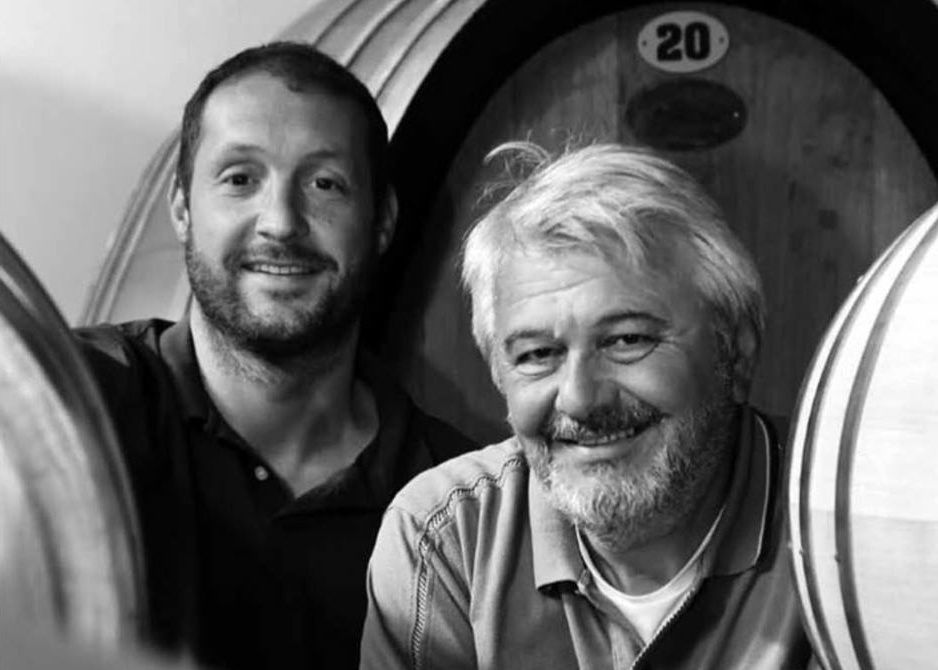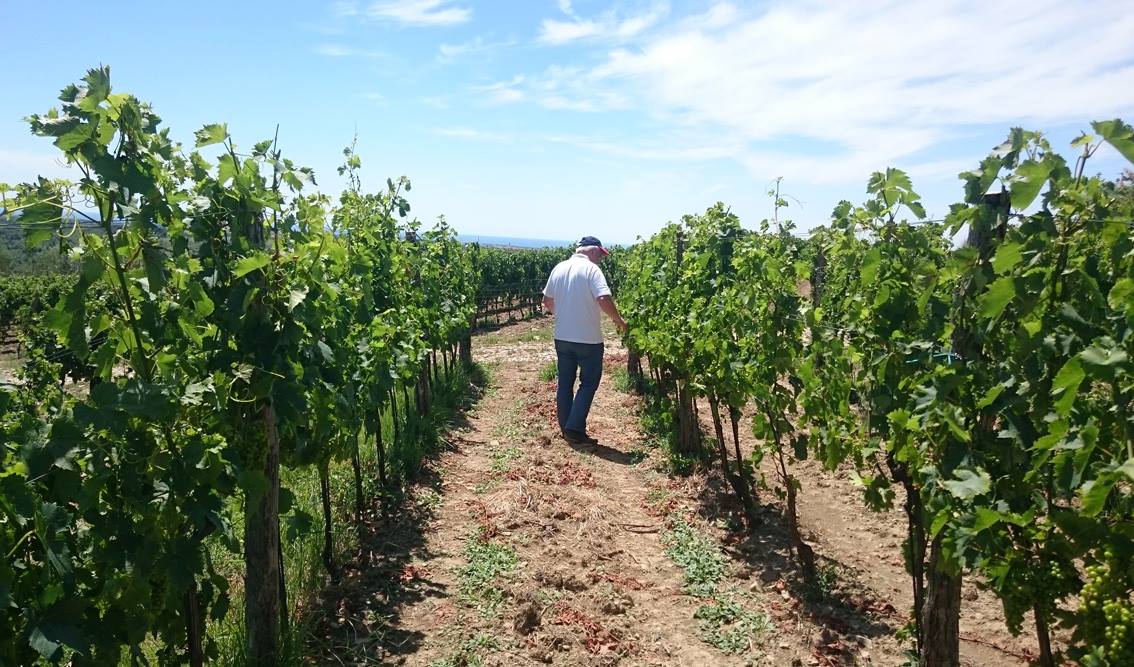December 9, 2018 — In the first article of the Best of Istria series find out about the famous Istrian winemaker Giorgio Clai, his philosophy and why his wines are some of the best you'll find in Croatia.
Up until ten or so years ago, the entire Istrian premium wines production scene could've been narrowed down to several names. Today, there are more than twenty regional winemakers comprising the Istrian winemaking elite, with Giorgio Clai of Clai Winery being one of them.
With more than 20 years in the restaurant business under his belt — all the while "making wine as a hobby" — in 2002 Giorgio decided to move back from Trieste, Italy to his native Istria with the idea of reinvigorating the Clai family estate which consequently pushed his beloved hobby into a vocation.
Photo: Dimitri Brečević & Giorgio Clai
And even though he was successful running the business on his own, several years ago, Clai joined forces with Dimitri Brečević of Piquentum Winery, a French-born winemaker who studied enology in Bordeaux, and upon graduation, also decided to move to his paternal homeland. Together, they are continuing to make top quality natural wines.
The Clai estate is located in Krasica, a small village just outside the medieval Grožnjan, with its vineyards and olive groves nestled among the lush rolling hills that stretch along the Mirna river valley. Though Clai's grape varieties are primarily ones indigenous to Istria — Malvazija, Refošk, and some Teran — he also cultivates Bordeaux giants like Merlot, Pinot, Chardonnay, and Sauvignon.
Praised as Istria's winemaking maverick, il grande Clai, as his friends and admirers call him, is known for producing some daringly individual wines though with an amazing level of balance and finesse, whereas Clai himself says that he'd rather have people dislike his wines than not recognize them.
Photo: Giorgio Clai in his vineyard
What's it all about
Giorgio Clai's philosophy is quite simple: he believes that every wine must fully express the grape variety and terroir and, if you work with respect for nature, no year is "good" or "bad" — the vintages are just different, depending on seasonal climate which determines wine's quality.
Adopting an approach to winemaking that first and foremost respects the environment, Clai has entirely eliminated the use of chemicals and pesticides, following the principles of ecological, biological and biodynamic agriculture. In fact, Giorgio likes to compare vines with humans: just as the use of antibiotics and synthetic vitamins weakens our immunity, so does the chemical treatment of vineyards weaken the vines.
As for the wine production itself, Clai relies on spontaneous fermentation and doesn't use any additional enzymes or selected yeasts; he uses wooden barrels for mellowing the wine and bottles it without sterile filtration or micro-filtering.
A load of bull... pardon, cow dung?
Not at all, it seems. One of the principles of biodynamics that Giorgio applies is the use of the so-called horn manure: cow horns are filled with fresh dung and buried in the vineyard for six months until the manure ferments, after which this rich compost is mixed with water and used for spraying the soil. This is said to enhance plant growth and improve the quality of the crops, whereas the spiritual theory behind it is that planting death and decay into the soil actually ushers vitality and breathes new life into the earth.
Apart from that, biodynamic viticulture relies on moon phases for planting, cultivation, and harvesting. Interestingly, up until recently, such rather unconventional methods have been considered pure madness among winemakers, but blind wine tastings are proving otherwise. With preconceived notions set aside, most wine experts are now recognizing that biodynamic wines are truly some of the best in the world, and Giorgio Clai's are no exception.
For more articles like this, make sure you follow TCN's dedicated page.



